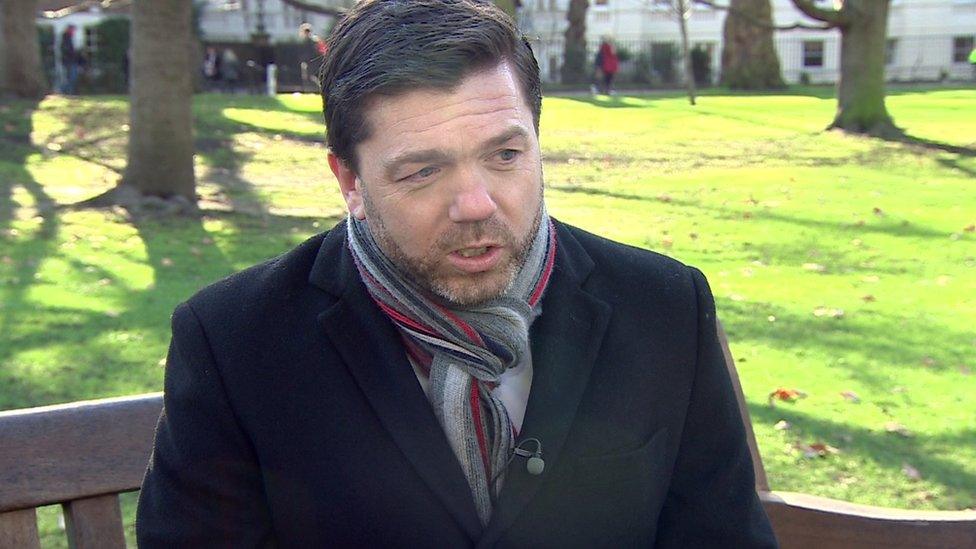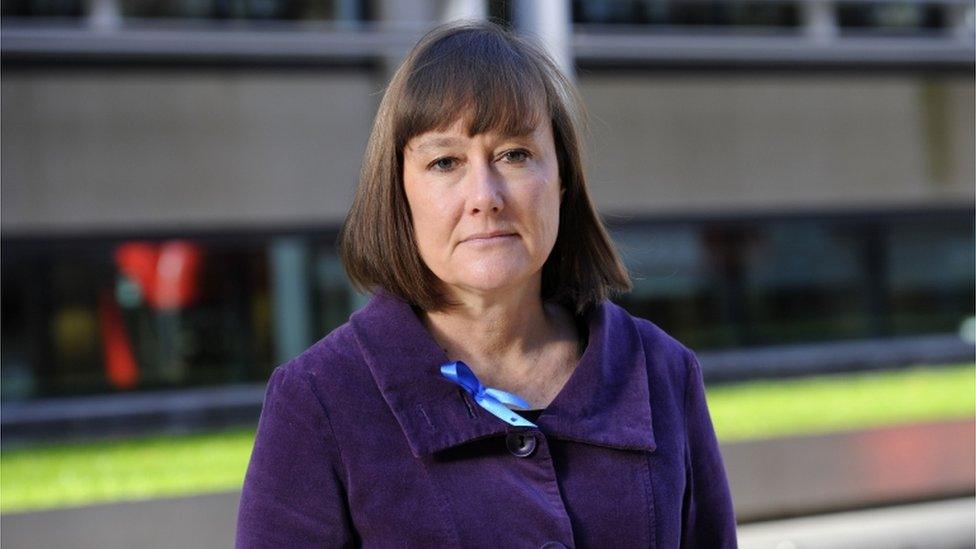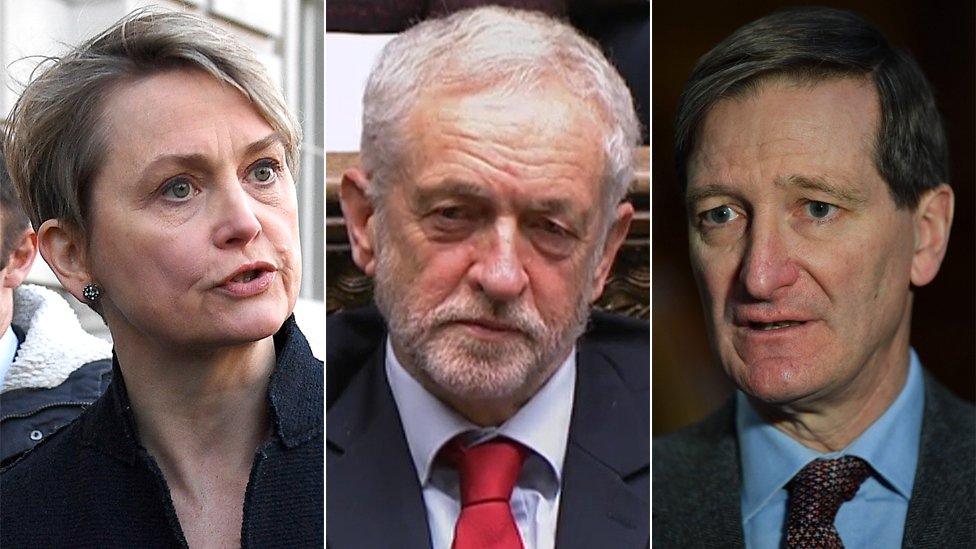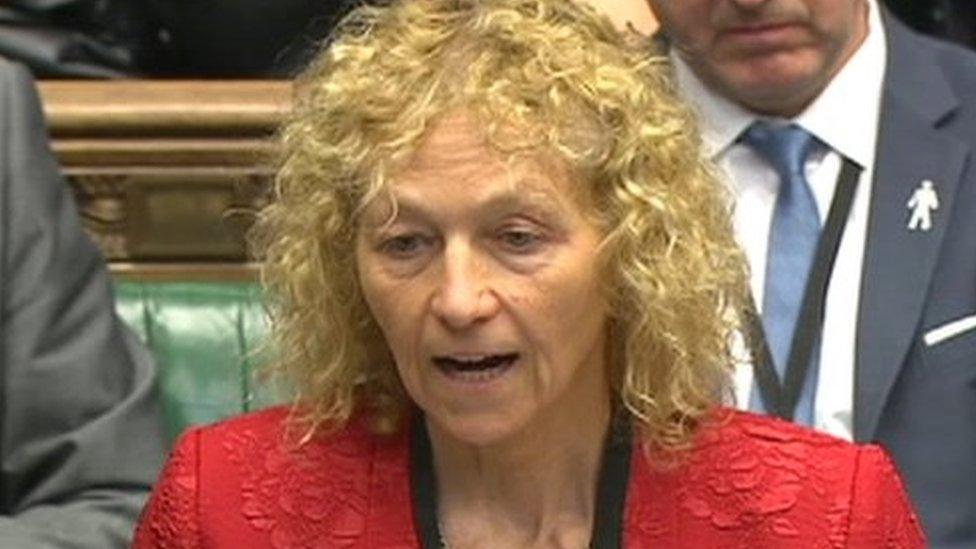Brexit in the Commons 'has been confusing for MPs'
- Published
- comments

Stephen Crabb said the public are looking on in "bemusement" at how Brexit is being handled in the Commons
How Brexit is being handled in Parliament has sometimes been confusing for MPs to make sense of, according to a former Welsh Secretary.
Stephen Crabb said members of the public are looking on in "bemusement and bafflement" at how "tangled up" the situation is.
On Tuesday, MPs will put forward a series of votes on alternatives to Theresa May's Brexit plan.
One Welsh Brexiteer said it could be that none of the options are passed.
Theresa May's deal with the EU was rejected by MPs in a historic defeat earlier this month. Currently the UK is due to leave the EU on 29 March - in two months' time.
Conservative MPs have been asked to support an amendment by Sir Graham Brady, which calls for the deal's backstop to be replaced from with "alternative arrangements".
The backstop is the insurance policy in the withdrawal agreement that aims to prevent a hard border on the island of Ireland.
Meanwhile an effort led by Yvette Cooper aims to avoid leaving the European Union without a deal by passing a law that will delay Brexit, if Theresa May's deal does not pass the Commons.
On Monday, retailers warned that shelves could empty if the UK leaves without an agreement.
Confused by Brexit jargon? Reality Check unpacks the basics.
Speaking before it emerged that Tory MPs would be whipped to back Sir Graham's initiative, Mr Crabb told BBC Wales: "A lot of people are looking on with bemusement and bafflement at just how confused and tangled up this situation seems to be".
He says people who voted for Leave "look on us in Parliament, playing these procedural games, and wonder what on earth we are doing".
He added that it had been "confusing even for MPs to make sense of it sometimes, if we're absolutely honest".
"We're all having to read up on the procedures of the House of Commons to understand what this standing order means, or that standing order".
The amendments, the Conservative said, were "a bit like a procedural waltz - quite complicated" but essentially boiled down to three choices - the deal on the table, no deal, or no Brexit.
"Everything else, really, is just dancing around the core issues,"
Backing Theresa May's deal, he said: "People are still hanging on for perfect, when there is a good compromise to be done".

Jo Stevens wants to see Article 50 - the process by which the UK is leaving the EU - revoked
It does not reflect well on MPs that she cannot give reassurances to people with concerns about Brexit, according to Cardiff Central Labour MP Jo Stevens.
The pro-EU MP said she would like to see the revocation of Article 50 - the mechanism that will trigger the UK's departure - but accepts there is not a majority for that to happen.
But she said she would support any amendments "that would stop, at this stage, a no-deal Brexit".
"I've had people come to tell me they are laying off staff, or they're saying they've stopped recruiting. They've had EU nationals poached to companies in the EU 27", she said.
"You want to give people some reassurance and some answers - but in a lot of situations its almost impossible to do so.
"I don't think that reflects well on all of us in parliament at the moment, and its very hard to see a way through this. The next few weeks will be absolutely critical."
David Jones, a former Brexit minister and Conservative MP for Clwyd West, said the Brady amendment is the nearest to his position - in that he wants to see the backstop removed from the withdrawal agreement - but said it was not clear enough for him to support it.
"The fact is the Irish backstop is a complete deal-breaker," he said.
"The fact is it keeps you tied into the withdrawal agreement and the arrangements under the withdrawal agreement, and you have no means of escape without the consent of the European Union."
He claimed there may be a number of Labour MPs - in Leave voting areas - who would be reluctant to support the Cooper amendment.
"It could be that nothing does" pass the Commons, said Mr Jones. "It could be that none of the amendments actually secure enough support to get through."
Plaid Cymru's four MPs are supporting the Yvette Cooper amendment.
The party's Liz Saville Roberts said there is not enough time for the government to get Brexit legislation through "even if they can come to a decision".
- Published29 January 2019

- Published30 July 2019

- Published29 January 2019

